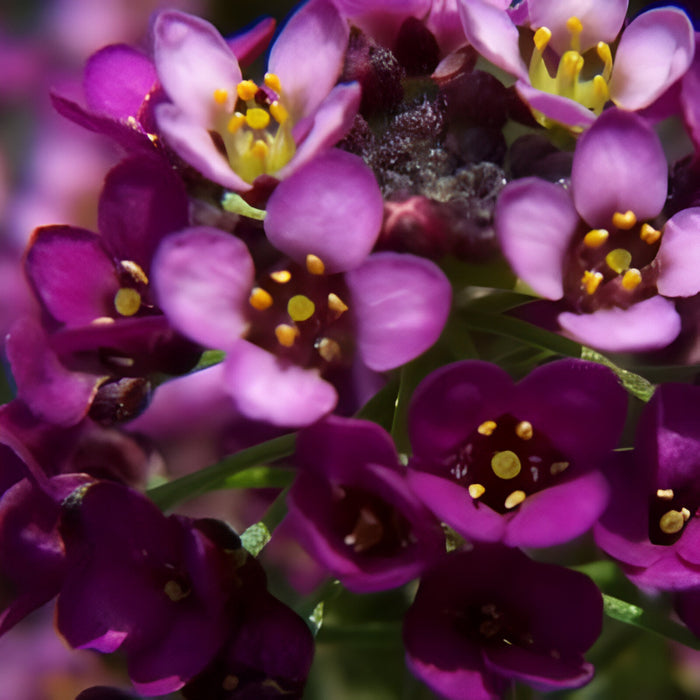
Easter Bonnet Alyssum Flower Seeds
Save 50%
Original price
$10.00
Original price
$10.00
-
Original price
$10.00
Original price
$10.00
Current price
$4.99
$4.99
-
$4.99
Current price
$4.99
Unveil the enchanting appeal of the Easter Bonnet Alyssum Flower Seeds, a botanical masterpiece that adds a touch of regal elegance to any garden. With its vibrant hue of bright purple adorned with a delicate white look, this floral gem promises to be the highlight of your spring and summer landscapes. Celebrate the arrival of spring with the Easter Bonnet Alyssum, a bloom that captivates with its early spring blossoms and continues to enchant throughout the entire summer.
Specifications:
- Color: Bright purple with a white eye
- Plant Seeds: Outdoors after frost / Indoors weeks before the last frost
- Plant Height: 4”
- Plant Spacing: 9 - 12"
- Bloom Time: Early Spring - All Summer
- Hardiness Zone: 10
- Light Requirements: Sun - Part Shade
- Soil & Water Preferences: Average
- Quantity: 100 Seeds
Package Includes:
- Seeds, Ziplock Poly bag labeled with color photo, Plant Stats, Planting Instructions

